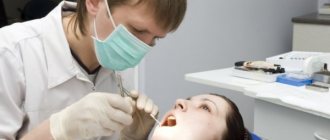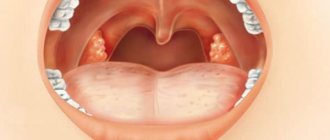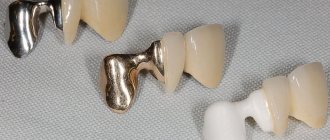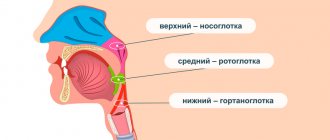Bad odor from the throat and mouth very often worries patients, but not everyone attaches great importance to this deviation. Experts call this phenomenon halitosis. An unpleasant odor can occur not only due to problems with the oral cavity. Many diseases and pathologies are accompanied by this symptom, therefore, to prescribe effective therapy, it is recommended to undergo a thorough examination. Treatment is prescribed based on the results obtained.
What diseases can cause an unpleasant odor?
The cause of an unpleasant odor in the throat can be associated with both normal physiological phenomena occurring in the body and pathological abnormalities. Among the diseases presented, there are serious and minor deviations, but in any case they require timely diagnosis and quality treatment. Experts include the following diseases as the most common provoking factors:
- Lung pathologies, including some forms of pneumonia.
- Liver diseases.
- Pathologies of the nasopharynx and throat.
- Diabetes.
- Oral cavity oncology, malignant formations.
- Diseases of the gum tissue.
- Carious formations.
- Diseases of the pharynx of a bacterial nature.
- HIV.
- Stomach ulcer.
If the patient has been diagnosed with one of the listed diseases, then after it is cured, the bad smell from the throat will disappear.
Other reasons
Halitosis can also be provoked by other reasons that are not associated with diseases of internal organs and systems. These factors include:
- Bad breath in the morning. Saliva is practically not secreted at night, so a favorable environment is created for the development and reproduction of pathogenic bacteria, which provoke unpleasant breath.
- Starvation. The smell will disappear after eating, as saliva will begin to be released intensively.
- Lack of fluid in the body. Provokes a slight secretion of saliva.
- Taking certain medications.
- After drinking alcoholic beverages.
- Eating flavorful foods.
- Smoking.
- Failure to comply with oral hygiene rules.
But you should understand that the listed causes of unpleasant odor from the mouth in most cases are caused by diseases, so you should consult a doctor to identify the pathology.
Bad breath due to gastrointestinal diseases
Bad breath in gastrointestinal diseases
Halitosis can be caused by diseases of the digestive tract, in which bacterial flora producing volatile sulfur compounds develops on the remains of dead tissue (for example, on the edges of ulcers), blood clots and food debris. Common pathologies:
- Gastroesophageal reflux disease (GERD);
- Zenker's diverticulum;
- Achalasia of the esophagus;
- Gastritis;
- Peptic ulcer;
- Tumors of the esophagus;
- Stomach cancer;
- Diseases in which there is an overproduction of volatile compounds with odor;
- Intestinal malabsorption syndromes (associated with excessive gas formation in the intestines);
- Liver failure associated with the accumulation of ammonia and other breakdown products of amino acids, causing an unpleasant odor, especially intense in hepatic encephalopathy.
The existence of halitosis caused by H. pylori infection is a controversial issue.
Diseases of the ENT organs
Various infectious diseases of the ENT organs can provoke an unpleasant odor from the throat. In this case, it is necessary to take into account that halitosis will be temporary and will disappear after treatment. If the patient is constantly bothered by this disorder, it is recommended to be checked for chronic infections of the nasal cavity, pharynx or tonsils.
In such a situation, an ENT specialist pays special attention to the tonsils, since they have a special structure - depressions and lacunae where food debris can accumulate. Therefore, bad throat odor is considered the leading symptom of chronic tonsillitis.
There are cases when even on healthy tonsils one can observe the formation of plugs, which consist of food residues, dead epithelium, bacteria and calcium salts. They are not considered dangerous, but they cause some discomfort to the patient and are accompanied by the same breathing from the mouth.
White lumps from the throat with an unpleasant odor occur for unknown reasons, but therapy is mandatory. The patient is prescribed mechanical removal of formations and preventive measures. In this case, blood and urine tests are required to exclude other diseases of internal organs and systems.
Causes of purulent plugs in the throat
Unpleasant sensations and pain in the throat accompany any person throughout the illness. The symptoms and consequences of a disease such as a congestion in the throat may be different for everyone, and are determined only by a medical specialist. Diagnostics involves a blood test, smear and other medical procedures that allow you to correctly establish a diagnosis and prescribe effective treatment. Redness and sore throat can be eliminated at home, but purulent plugs in the throat of various etiologies certainly require special treatment and attention.
The cause of purulent plugs in the throat can be different. But the result of any cause may be inflammation of the tonsils. The tonsils are lymphoid tissue that protect the throat from various infections. A severe inflammatory process in the tonsils can be caused by various microbes, which is why a correct diagnosis can only be made by obtaining a smear of the larynx.
Sore throat can be caused by microbes such as streptococcus, pneumococcus, staphylococcus or adenoviruses, and diphtheria - by diphtheria microbes. Only timely treatment of purulent plugs in the throat will help avoid serious complications .
Symptoms
A bad smell from the throat may also be accompanied by additional symptoms, which help in making a diagnosis. During the examination, the specialist pays special attention to these signs.
Symptoms of halitosis:
- Pain in the area of damaged and loose teeth.
- Unpleasant sensations in the throat: soreness, pain.
- Drainage of mucus down the back of the throat.
- Breathing problems.
- Heartburn, belching, nausea and vomiting.
- Thirst and dry mouth.
- Unpleasant taste in the mouth.
- Spitting blood.
If the patient has the listed symptoms along with a bad odor, you should immediately contact a specialist and undergo all tests, undergo a full examination of the body in order to establish the true cause of the disorder. If this is not done, the disease will progress, the general condition will worsen, and halitosis will become more intense.
Eliminating odor at home
Patients can also get rid of bad breath using folk remedies; effective methods are:
- carrying out inhalations with a nebulizer;
- mouth rinse;
- performing steam inhalations;
- irrigating the throat with herbal decoctions.
A nebulizer is a special device for inhalation at home. It is used to inhale a sprayed liquid based on decoctions prepared from oak bark, cedar, sage, and lavender.
In the absence of a device, steam inhalations are performed; the following products are often used as raw materials for them:
- lemon juice and honey;
- pine buds along with essential oils;
- liquid obtained from horseradish.
The most convenient and common method is gargling; the following recipes are effective for gargling:
- tincture of alcohol with the addition of calendula;
- eucalyptus composition;
- chamomile decoction;
- hydrogen peroxide;
- tea from St. John's wort, mint;
- a solution of soda and salt;
- iodine composition;
- a medicinal mixture based on Furacilin;
- beetroot drink.
These products have a pronounced disinfectant effect. They allow you to eliminate painful sensations in the throat, cope with putrid odor and discomfort.
Irrigation is an alternative way to get rid of unpleasant sensations in the throat; manipulation is indicated in cases where the patient is not recommended to rinse the mouth. Irrigation is performed using syringes, syringes without needles. Herbal decoctions and mixtures of medications are chosen as a solution for the procedure.
Forms of halitosis
In modern medicine, there are several forms of halitosis, the treatment of which differs. Therapy is prescribed exclusively by a specialist after a thorough examination. Self-treatment cannot be carried out, as it can lead to negative and irreversible consequences.
Forms of halitosis:
- True. Unpleasant odor from the mouth is felt by those around you. This type of disorder is of two types - physiological and pathological. The first includes the smell resulting from fasting, and the second - diseases of the oral cavity and internal organs.
- Pseudoform. The unpleasant odor is not very pronounced, those around them almost do not feel it, but the patient feels insecure.
- Halitophobia. The patient is constantly in an anxious state due to an imaginary unpleasant odor from the oral cavity. In this case, the patient is recommended to consult a psychiatrist.
Only a specialist can determine the form of the disease.
What causes a putrid smell from the throat?
An unpleasant odor does not in all cases cause serious illness in humans. Rinsing the mouth with various herbal solutions is considered a sufficient measure. Dental treatment and basic hygiene eliminate the problem.
When symptoms are additionally accompanied by the discharge of pus, this is a reason to contact a specialist. Mucus along with a putrid odor indicates the development of an abscess in a person. Such a violation is a common occurrence after insufficient treatment of angina. The patient requires urgent hospitalization, during which the pathology is opened and an intensive course of antibiotic treatment is prescribed.
Ignoring the symptoms, expressed in the form of a putrid odor, often causes a person to develop a number of serious complications:
- rheumatism due to poorly treated tonsillitis;
- spread of infection to the kidneys;
- the occurrence of heart disease due to insufficient treatment of sore throat;
- the appearance of constant muscle pain due to intoxication;
- the development of a cancerous tumor, manifesting itself as a lump in the throat.
Constant bad breath, coupled with severe pain in the stomach, indicates the development of a deadly ulcer in a person. This disease often provokes bleeding in the stomach, causing death in the patient.
Poorly treated tonsillitis often manifests itself as unpleasant sensations in the mouth. Ignoring the phenomenon increases the likelihood of a person developing purulent inflammation, against which there is a high percentage of blood poisoning. Such symptoms lead to deadly phlegmon of the neck. All cases require timely contact with appropriate specialists.
Diagnostics
If a patient notices white lumps in his throat with an unpleasant odor, then do not postpone a visit to the hospital. The doctor will pay attention to complaints and severe symptoms and analyze the patient’s general condition. After which it is recommended to assess the severity of odor from the oral cavity. This method is called organoleptic. For the results to be reliable, 24-48 hours before visiting the doctor, the patient should not take hot, spicy foods or use scented cosmetics.
The examination also pays attention to the oral cavity, tongue, throat, larynx, nose and nasopharynx. The patient is prescribed to undergo an X-ray or computed tomography scan of the paranasal sinuses. If the dentist or ENT specialist does not detect any abnormalities, the patient is referred for additional consultation to a gastroenterologist or pulmonologist. A biochemical blood test is required, and attention is paid to the level of kidney and liver enzymes.
Is it necessary to remove tonsils for halitosis?
Many patients ask questions: “How to remove bad odor from the throat? Is it necessary to remove the tonsils? Only a specialist can answer them for sure. If a patient is often diagnosed with tonsillitis, it is recommended to surgically remove the tonsils to get rid of halitosis.
After the operation, the patient’s condition will improve significantly, putrefactive plugs and food debris will no longer accumulate in the throat. Thus, the favorable environment for the proliferation of pathogenic microorganisms will disappear. However, tonsil removal is considered a radical method that is rarely used.
In modern medicine there are other ways to solve this problem. For example, the constant removal of plugs by washing the tonsils. To consolidate the positive result, the patient is advised to use medications that will stimulate the immune system and prevent exacerbation of chronic tonsillitis.
Treatment of halitosis
Treatment of unpleasant odor can be carried out in several ways: medication, folk remedies and rinsing. Drug therapy is based on the provoking factor. If halitosis was caused by plugs on the tonsils, then the patient is prescribed antibacterial agents, immunostimulants, physiotherapeutic methods and rinsing. Treatment in this case should last no more than 10 days.
As for antibiotics, it is recommended to take them from the first day after the formation of plugs. The doctor may prescribe Ceftriaxone, Cefin or Augmentin. How can you gargle to get rid of an unpleasant odor? Antiseptics can be used for this: “Furacilin”, “Angilex”, “Dioxidin”. The procedure is carried out at least 4 times a day. To strengthen the immune system, it is recommended to take Levamisole. For chronic rhinitis, antiviral drugs are used to help get rid of flu, colds and runny nose. It is also possible to use antihistamines.
Bad smell from the throat without coughing can be eliminated using folk remedies. The patient is recommended to carry out inhalations, rinse the mouth with herbal decoctions - sage, oak bark, lavender essential oils. If it is not possible to rinse, then irrigation can be done. Folk remedies should be used in conjunction with medications.
Treatment of mucus in the throat
Treatment of mucus in the throat at the ENT-Asthma clinic is comprehensive and is aimed at suppressing local symptoms of the disease, affecting the main causes that maintain mucus in the throat. The main task of treating mucus in the throat is to eliminate discomfort. For more effective treatment, painkillers and anti-inflammatory, antiseptic and antibacterial drugs are used.
For local treatment of mucus in the throat, drugs can be used to help moisturize the mucous membrane and relieve sensations that are considered paresthesia - a feeling of soreness and tickling in the throat. In cases where mucus in the throat is a symptom of an infectious disease , atomization of the pharyngeal cavity is used using aerosols of combined action (antiseptic and analgesic). The choice of an antibacterial agent by an ENT doctor largely depends on the identified pathogen in case of moderate and severe course of the disease.
If the mucus in the throat is of an allergic nature, then our specialist doctors use a complex of antihistamines. To treat mucus in the throat, the ENT-Asthma clinic uses immunomodulators , which stimulate the body’s own forces to fight the disease. Simply put, the desired result is achieved by increasing immunity. To effectively treat mucus in the throat, sanitation of foci of infection, the oral cavity and the upper respiratory tract is indicated.
Preventive actions
Prevention of halitosis consists of full compliance with all specialist recommendations. The patient is advised:
- Maintain oral hygiene.
- Conduct timely treatment of diseases of teeth and gum tissue.
- Treat diseases of the throat, nasal cavity and ears.
- Do not trigger pathologies of the gastrointestinal tract.
- Constantly humidify the air in the room.
- If you have chronic tonsillitis, then regularly wash the tonsils.
- Lead a healthy lifestyle. Avoid drinking alcoholic beverages, smoking tobacco, playing sports, spending time in the fresh air more often, and observing work and rest schedules.
Also, with this disease, it is worth eating properly and balanced. Avoid canned, fried and spicy foods. At the same time, meals should be fractional, in small portions; you should not overeat, especially if diseases of the gastrointestinal tract are diagnosed.










